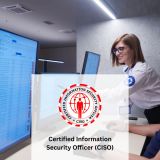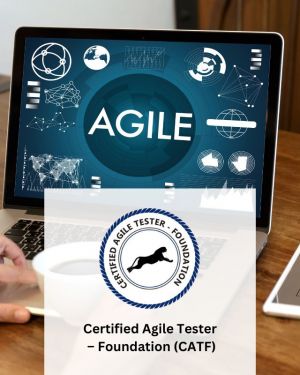The Certified Professional Business Analyst (CPBA)® Program is designed to provide you with the core skills, knowledge, and hands-on experience needed to succeed as a Business Analyst in today’s global marketplace.
The Certification addresses real-world problems that business analysts face, demonstrates how to use business analysis techniques and tools, and uses exercises to enhance the transfer of knowledge back to the workplace.
The CPBA® Certificate series covers:
-
The overall process of business analysis
-
How it fits into the project life cycle
-
The business context in which it operates
The program focuses on analyzing current best practices from some of the most successful companies utilizing Business Analysis today.
Participants will learn to:
-
Define and manage requirements effectively
-
Elicit information from stakeholders
-
Analyze business processes
-
Deliver innovative and efficient solutions to complex business challenges
E-Course Duration
20 to 25 Hours
Exam Information
-
Exam Pattern: 100 Multiple Choice Questions (80% required to pass – 80/100 correct)
-
Duration: 1 hour 30 minutes (90 minutes)
-
Format: Online, non-proctored exam, available anytime and anywhere within an 8-month validity period
Voucher Information
-
A voucher code with two attempts is assigned to your profile under “My Vouchers.”
-
Exam can be accessed through the “My Exam(s)” tab.
-
If both attempts are unsuccessful, a new voucher can be purchased (2 additional attempts granted).
⚠️ Note: If you pass on the first attempt, the second attempt cannot be used.
Certification Validity: Lifetime
Course Outline
Module 1 – Introduction
-
Introduction to Business Analysis
-
What is Business Analysis?
-
Key concepts
-
Knowledge Areas
-
Systems/Software Development Life Cycle
-
Techniques
-
Underlying Competencies
-
Business Analysis Information
Module 2 – Business Analysis Planning & Monitoring
-
Plan Business Analysis Approach
-
Conduct Stakeholder Analysis
-
Plan Business Analysis Activities
-
Plan Business Analysis Communication
-
Plan Requirements Management Process
-
Manage Business Analysis Performance
Module 3 – Elicitation
-
Preparation for Elicitation
-
Conduct Elicitation Activity
-
Document Elicitation Results
-
Confirm Elicitation Results
Module 4 – Requirements Management and Communication
-
Manage Solutions Scope and Requirements
-
Manage Requirements Traceability
-
Maintain Requirements for Reuse
-
Communicate Requirements
Module 5 – Enterprise Analysis
-
Define Business Need
-
Assess Capability Gaps
-
Determine Solution Approach
-
Define Solution Scope
-
Define Business Case
Module 6 – Requirements Analysis
-
Prioritize Requirements
-
Organize Requirements
-
Specify and Model Requirements
-
Define Assumptions and Constraints
-
Verify Requirements
-
Validate Requirements
Module 7 – Solution Assessment and Validation
-
Assess Proposed Solution
-
Allocate Requirements
-
Define Transition Requirements
-
Validating Solutions
Target Audience
-
Business and systems analysts
-
Internal and external consultants and advisors
-
Managers and team leaders
-
Professionals involved in defining and managing requirements
-
Individuals responsible for eliciting information from stakeholders
-
Those solving, defining, or analyzing business problems








